- Home
- Patrick Robinson
Kilo Class (1998) Page 13
Kilo Class (1998) Read online
Page 13
Like a panther, the old man who ruled China was on his feet, tipping his chair over backward. “STOP,” he said. But his anger was directed at the Commissar. “I warned you, Admiral Yang, that I would not permit you to cast doubts on the abilities and integrity of my Commander in Chief. You have chosen to ignore me, and that is unwise, because I happen to believe in what he is saying. Your insults to him are thus insults to me and to the great and exalted Navy Commanders in this room who also agree with him, and who have illustrious careers behind them, perhaps even greater than your own.
“It is my judgment that we do not require a political commissar in this room who challenges the sincerely held views of our High Command. We already have here the General Secretary of the Party, and the matter is in any event military. We are dealing with a possible strike against a proven enemy, and the buildup of our submarine fleet. I would be honored if you would leave us.”
Admiral Yang, a slight man of perhaps fifty years, stood up without another word, bowed to the head of the table, and left in silence. He left with an arrogant expression on his clean-shaven face, another mistake for an officer whose career was drawing to its inevitable close. The Paramount Ruler was unused to disobedience. In another age he would have been an emperor.
Admiral Zhang stood while the Ruler was seated again. He then offered his most humble apologies for any part he may have played in the great man’s displeasure. But the Ruler merely looked up and said gravely, “You, my son, have elected to shoulder these terrible burdens yourself. You are treating China’s woes as if they were yours alone. I see in you much of myself when I was a younger man. How can I be displeased with a loyal and distinguished officer, who I know will torture himself unto the grave over the loss of those submarines? The difference between you and most people, Zhang Yushu, is that I would gladly trust you with my own life.”
Several of the men seated around the table nodded in assent. “I can only thank you for your kindness, sir,” Admiral Zhang replied, “and hope that you always understand that I have no motives of a personal nature, only those that I judge to be correct for our nation.”
The Paramount Ruler asked for some tea to be served and then he made his judgment. “There will be no strike against the USA. We will act as if nothing has befallen us. I entrust Admiral Zhang to do everything in his power to ensure the safe delivery of the last five Kilos. My thoughts will be with him, and all of his Commanders.”
They sipped their tea as the meeting broke up, and again it was the South Sea Fleet Commander Admiral Zu Jicai who walked with Admiral Zhang along the endless corridors of the Great Hall of the People, which is probably the biggest center-city government building on earth, comprising 562,000 square feet.
“Well done, sir,” said Zu. “I thought he was going to cancel the last five.”
“You did? What do you think I thought? I thought I might have to remind him of the words of Mao Zedong: ‘Real power comes from the barrel of a gun.’”
“If he was still alive, he’d have to admit that in the twenty-first century, real power lies with the Navy, and its capacity to own and operate the most modern warships.”
“You’re right, Jicai. And I’ll tell you something else. Nothing, absolutely nothing, would give me greater pleasure than to sink one of those American aircraft carriers. And then say in amazement, “Us? Don’t be ridiculous. You are our friends. We would not dream of doing such a thing. How could you think that of us?”
“Sometimes, Zhang, I have thought your hatred of the American military was unreasonable. But I no longer think that. I only think, ‘Who do they think they are?’”
“That’s the trouble, Jicai. They know who they are. The world’s policemen, and they’re too big, too tough, and too damned clever to be challenged. But if we get our hands on enough of those Kilos to have a permanent force in the South China Sea, I’ll challenge them. I’ll wait it out, and I’ll sink one of their carriers. I live for the day when I sink one of them.”
“Tread carefully though, my honored friend Yushu. And remember the Gulf War in 1990. Our finest weapons helped to arm the Iraqis, and the Americans made them look like children in a grown-up world. They are very, very dangerous.”
“So am I, Jicai.”
The two men walked out into the snow, which was now scuffed and packed down by a million feet and just as many skidding bicycles. The Forbidden City towered in the background, and the northwest wind still blew raw across Tiananmen Square. It was no warmer and more snow was forecast. Both men pulled their Navy greatcoats around them, and the black staff car drew up alongside in slushy splendor.
“I’ll ride out to the airport with you,” said Admiral Zhang. “We’ll talk more about the deployment of the next submarines, and the escort plan we must make with the Russians. And I’ll try not to allow my anger to rise whenever I think of the US Navy. But if I could have one wish, it would be to blow up the Pentagon and everyone in it. I simply cannot accept that they wiped out two brand-new submarines and a hundred crew, without warning and without reasonable motive. And that no one is ever going to know.”
“We know, Yushu,” said Admiral Zu. “And perhaps that will be enough for our purposes.”
The snow began to fall again as the People’s Liberation Army staff car turned northeast along Jichang Lu on the thirteen-mile journey to Beijing airport. The time was 1300.
On the other side of the world, ten thousand miles away, it was nine o’clock on the previous evening, and the weather was not much better on the cattle-rearing prairies of central Kansas.
Great herds roamed through the snow, and cowboys fought their way through blizzards, getting feed to the more remote areas. It had been a long day, and everyone was tired at the big ranch that lies between the Pawnee River and Buckner Creek in Hodgeman County.
Beyond the wide wrought-iron gates, which bore the distinctive B/B brand of the immense Baldridge ranch, the lights still burned in the main house. Only one man was still awake, the new president of the family business, forty-year-old Bill Baldridge, a former United States Navy Lieutenant Commander.
He sat alone in front of a log fire, considering whether to buy another half mile of land along the southern bank of the Pawnee. It was expensive, but the river gave it added value, and Bill was thinking of expanding one of the Hereford herds in the summer. He was staring at the prospectus, mentally working out what he could reasonably afford to pay for the six hundred acres scheduled to auction the following week, when the phone rang in the far corner of the room.
He walked over and answered, “Baldridge.”
“Bill? Hi, this is Boomer Dunning.”
“Boomer! Old buddy. How ya been?”
“Pretty good. Busy, nothing too serious. How ’bout yourself? Enjoying retirement?”
“Yeah, right,” said Bill. “Never worked so hard in my life. The weather’s been hell out here for three weeks—snow, wind, and ice. Me and my brother have been out all day every day. My manager’s got the goddamned flu, my good horse, Freddie, is lame, and it’s a goddamned miracle I haven’t got frostbite. If this is retirement, lead me to a nuclear boat.”
Boomer laughed. “Then my call is fortuitous. Because I am on this line to take you away from all that.”
“Christ, you’re not offering me a job are you?”
“Hell no. Better than that. I’m offering a vacation.”
“What kind of a vacation?” Bill asked skeptically.
“A bit unusual. But it might be fun. A friend of my Dad’s, some Australian banker, has asked me to deliver a boat for him. I’ve only seen pictures, but she’s brand-new, a sixty-seven-foot sloop, Bermuda rigged, teak decks, power winches, big Perkins Sabre engine, the whole shebang. Looks very comfortable. All teak interior. Carries two foresails, and I guess she’ll go like the bejesus. She’s called Yonder.”
“Yeah? Where is she?”
“Right now she’s lying in Port Elizabeth, South Africa. The banker sailed her down there himself from the Hamb
le in England, where she was built. Took him six weeks, with four guests, three serious crew, and a cook. I got a letter from him, says she handled the Bay of Biscay no trouble, in bad weather.”
“Where we gonna take her?”
“Hobart, Tasmania. Southeast corner of Australia. This guy’s building a hotel there, right on Storm Bay. That’s the huge yachting area out in front of the town.”
“Christ, Boomer. That’s a hell of a way from Port Elizabeth, isn’t it? It’s gotta be ten thousand miles.”
“No, less than six. He says five thousand seven hundred and ninety-three. We’ll take the Great Circle route, but we’ll stay away from the Antarctic. And right from the start we’ll be in the prevailing westerlies, dead astern almost all the way. The guy says she can make twenty knots on a run. It’s her best point of sailing, if you don’t lose your nerve.
“Anyway, we’ve no need to push it, and we won’t have the crew to race the boat all the way. You’d need a dozen pros for that. But we should average a good nine knots for a couple of weeks. That’d leave us two weeks to cover the last three thousand miles. We’d only need to average nine knots to make the journey in twenty-eight days. He says it gets done regularly in lesser boats in twenty-six days.”
“Roaring Forties, right?”
“Yup. Hobart stands on longitude 42.53S. And of course it’s midsummer down there.”
“Hell, you make it sound very attractive. When you thinking of going?”
“February. I got a month’s sabbatical while Columbia goes in for maintenance. I’m aiming to clear Port Elizabeth on February first. I gotta be back in New London March fourth. Jo’s coming with me. Her mom’s coming down from New Hampshire to look after the girls while we’re away. How about it, Bill?”
Former Lieutenant Commander Baldridge, still holding the land prospectus, demurred. Three thousand bucks an acre was a lot of cash for grazing land. “What’s it going to cost us?”
“Nothing. The boat’s completely equipped with all food and drink. She’s fueled up. The crew are paid for, three of ’em, plus the cook. Aside from their quarters, there are three big double berths, two bathrooms. It looks really great.”
“Yeah, but we gotta get there by air. And back.”
“You ready for the good news?”
“Hit me.”
“Still nothing. The guy’s flying us out to Port Elizabeth from wherever we are in the States, and home from Tasmania via Melbourne. He’s flying us up there in his own plane. It’s only about four hundred miles.”
“Jeez, this is getting better by the minute.”
“I told him this was a very serious journey. And that I would be happy to skipper the boat. But I would not do it unless I had another American sailor with me who I knew was a good navigator. I told him that would probably cost him four round-trip air fares. He never blinked. Said that since he was trying to get a seven-hundred-and-fifty-thousand-dollar yacht safely across the world, he was not much bothered by five thousand bucks’ worth of air fares.”
“Sounds a bit too much fun, and a bit too good for me to pass up,” said Bill. “I have to bring Laura with me.”
“Good. Jo’s coming, too. It’s gonna be great. Who’s Laura?”
“Laura is the lady I am marrying when her divorce comes through in May.”
“Not the one you told me you were going to marry a year and a half ago—the one you’d only met twice for a total of about an hour and a half.”
Bill chuckled. “You got it.”
“The Scottish Admiral’s daughter, right?”
“That’s it.”
“Jesus. You’re a man of your word. Where is she now?”
“Asleep.”
“Yeah, where?”
“Right here. The yellow bedroom, on the right, down at the far end of the top landing, view down to the creek. Need more detail?”
“Yeah. Where’s your room.”
“Not that far to the south. Next door actually. As far away from my mother’s room as I can manage. She won’t move out till we’re married.”
Boomer yelled with laughter. “Now I know why you’re coming south. Free at last, you rascal.”
The two men chatted on for another ten minutes about the Navy and mutual friends, and agreed to travel from New York to Johannesburg on January 29, arriving in South Africa on the morning of January 30. That would give them a couple of days to get the yacht sharpened up for the voyage.
News of their impending arrival was faxed from New London to Tasmania the moment Boomer put down the phone. Another fax was sent from Hobart to Port Elizabeth, which had the effect of making the English crew instantly nervous.
The first mate, Roger Mills, read the news glumly. “One of ’em is supposed to be a nuclear submarine Commanding Officer, the other’s a millionaire rancher from Kansas who was a submarine weapons expert for about fifteen years. Both outstanding sailors. Shouldn’t think either of them will stand for a lot of bullshit.”
The following morning in Kansas was clear, bright, and cold. Bill was out at 0700 and back for breakfast at 0830. His mother was out, and the slim, beautiful Laura Anderson was pouring coffee as he kicked the snow off his boots, took off his sheepskin coat, and headed for the great log fire that burned in the entrance hall throughout the winter.
Bill stood six feet two inches tall. As a teenager he had honed his body while wielding a sledgehammer mending fence posts for his father. He had never lost that hard edge even in the Navy, where he served for months on end in submarines. Out here in Kansas, back on the historic family ranch, riding horses all day, he still had the build of a Navy wide receiver, which he could have been had he been prepared to take football seriously. He actually looked like a slender Robert Mitchum. He had unnaturally broad shoulders, and in uniform he had looked like a god, with his piercing bright blue eyes. The fact that he had never lost the rolling gait of the cowboy had caused certain girls almost to faint with admiration as he strode over the horizon.
Laura had not reacted precisely like that when they first met, but anyway, right now she brought him a mug of coffee as he stood by the fire, thawing out. He took it “black with buckshot,” which was a throwback to his Navy days working in Fort Meade with Admiral Arnold Morgan, who thus referred to the tiny saccharine pills he fired into the brew from a blue container.
Laura kissed him lightly on the cheek and told him, as she told him every morning, that she loved him beyond redemption. And that she regretted nothing.
Bill smiled and put his arm around her. “You’ve been very brave,” he said. “And it’ll all work out in the end…I have a surprise for you.”
Laura’s green eyes widened. “You have?”
“I have. We’re going on a vacation. At the end of this month. We’ll be gone for four and a half weeks. And you’ll probably die when I tell you what we’re doing.”
“I will?”
“We’re going to South Africa, and then we’re going to sail a big sixty-seven-foot sloop to the southeastern tip of Australia. We’re going with an old friend of mine, a Navy commander, Boomer Dunning and his wife. It’s a brand-new boat, beautiful interiors, big engine, and a crew of three, plus a cook.”
“Well, it sounds wonderful, my darling. But are you sure I’m ready for the Southern Ocean? That’s the Roaring Forties, isn’t it? Dad says it can be the most fearsome place in the world.”
“It can. But it’s not really so bad in the high summer. Which February is down there. All it really means is that we sail almost the whole way with a stiff, gusting westerly astern, which should get us there real quick. Two of the crew are very experienced hands, and Boomer is a world-class ocean racing skipper. I sailed with him last August in Newport while you were in Scotland, remember?”
“Oh, I do. He’s the nuclear submarine CO, isn’t he? Weren’t you both in that short Maxi race, round Block Island, in the big Greek boat?”
“Whaddya mean, in it? We won it,” chuckled Bill.
He kissed her on t
he cheek and noticed the tiredness in her face—the kind of tiredness that comes when a person is taking an endless mental beating, as Laura now was. As they had both known she would when first they had embarked on their long adventure together. The divorce had been a nightmare, but the custody battle had been much worse. Bill did not know how much more Laura could take of it, and whether she might, in the end, leave him and return to Scotland.
Boomer’s forthcoming voyage had come as some kind of a godsend to Bill Baldridge. It provided an opportunity to take Laura right away from the endless lawyers’ letters, the government forms, and the court proceedings half a world away. Each one of the cold, emotionless documents seemed to confirm in her mind that in the eyes of the law she had abandoned her two daughters and was an unfit person to raise children. Both she and Bill knew the assertion to be spurious lawyers’ rubbish. But it made no difference. In the Scottish legal system, and in the media, no one else agreed with them, and the wheels of justice ground ever onward. The letter that had arrived only this week suggested there was no chance she would be permitted to see the girls before July at the earliest.

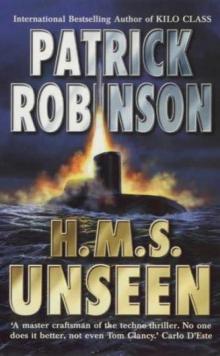 H.M.S. Unseen am-3
H.M.S. Unseen am-3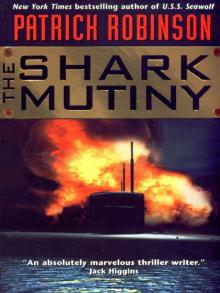 The Shark Mutiny (2001)
The Shark Mutiny (2001)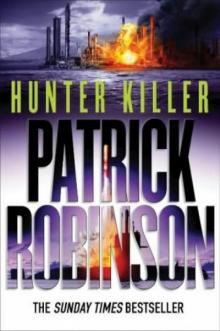 Hunter Killer am-8
Hunter Killer am-8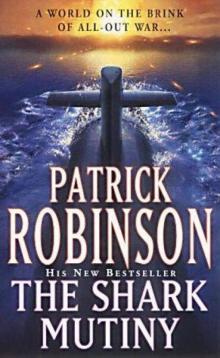 The Shark Mutiny am-5
The Shark Mutiny am-5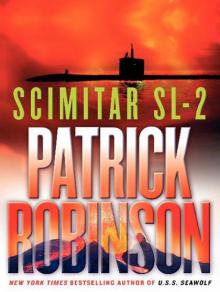 Scimitar SL-2
Scimitar SL-2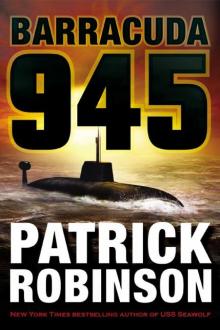 Barracuda 945 am-6
Barracuda 945 am-6 Hunter Killer
Hunter Killer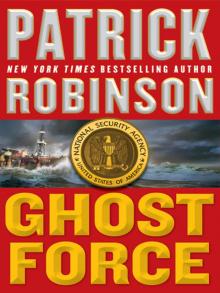 Ghost Force
Ghost Force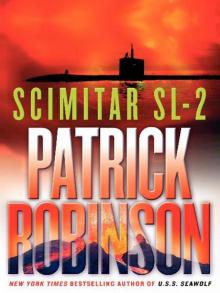 Scimitar SL-2 (2004)
Scimitar SL-2 (2004)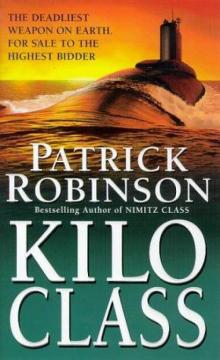 Kilo Class am-2
Kilo Class am-2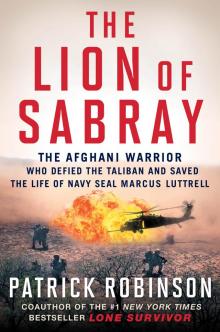 The Lion of Sabray
The Lion of Sabray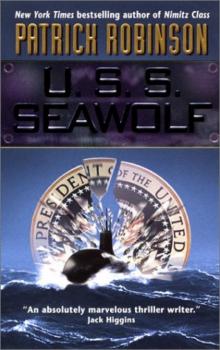 U.S.S. Seawolf am-4
U.S.S. Seawolf am-4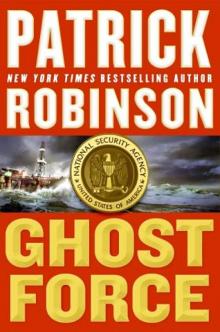 Ghost Force am-9
Ghost Force am-9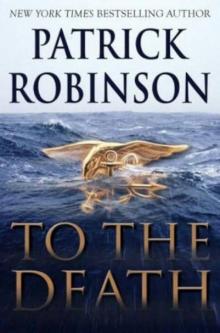 To the Death am-10
To the Death am-10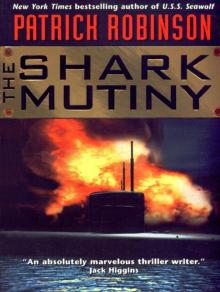 The Shark Mutiny
The Shark Mutiny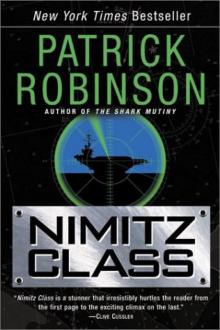 Nimitz Class am-1
Nimitz Class am-1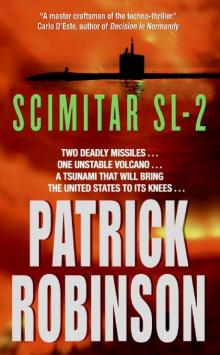 Scimitar SL-2 am-7
Scimitar SL-2 am-7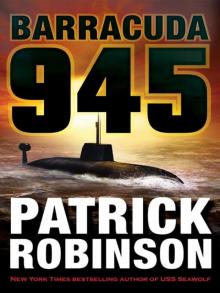 Barracuda 945
Barracuda 945 Intercept
Intercept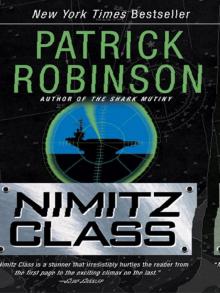 Nimitz Class (1997)
Nimitz Class (1997)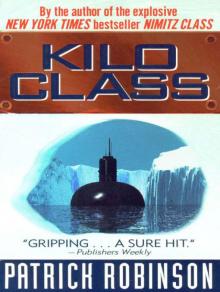 Kilo Class
Kilo Class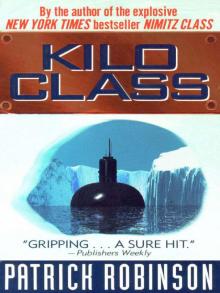 Kilo Class (1998)
Kilo Class (1998) Diamondhead
Diamondhead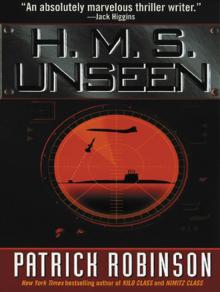 H.M.S. Unseen
H.M.S. Unseen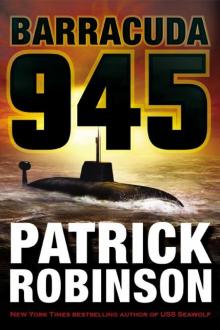 Barracuda 945 (2003)
Barracuda 945 (2003)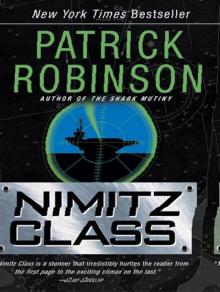 Nimitz Class
Nimitz Class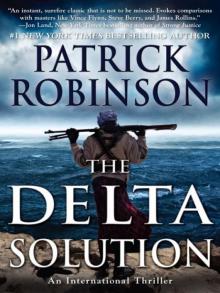 The Delta Solution
The Delta Solution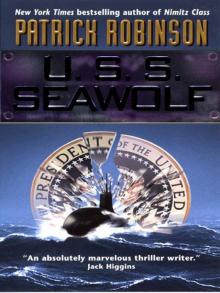 U.S.S. Seawolf
U.S.S. Seawolf